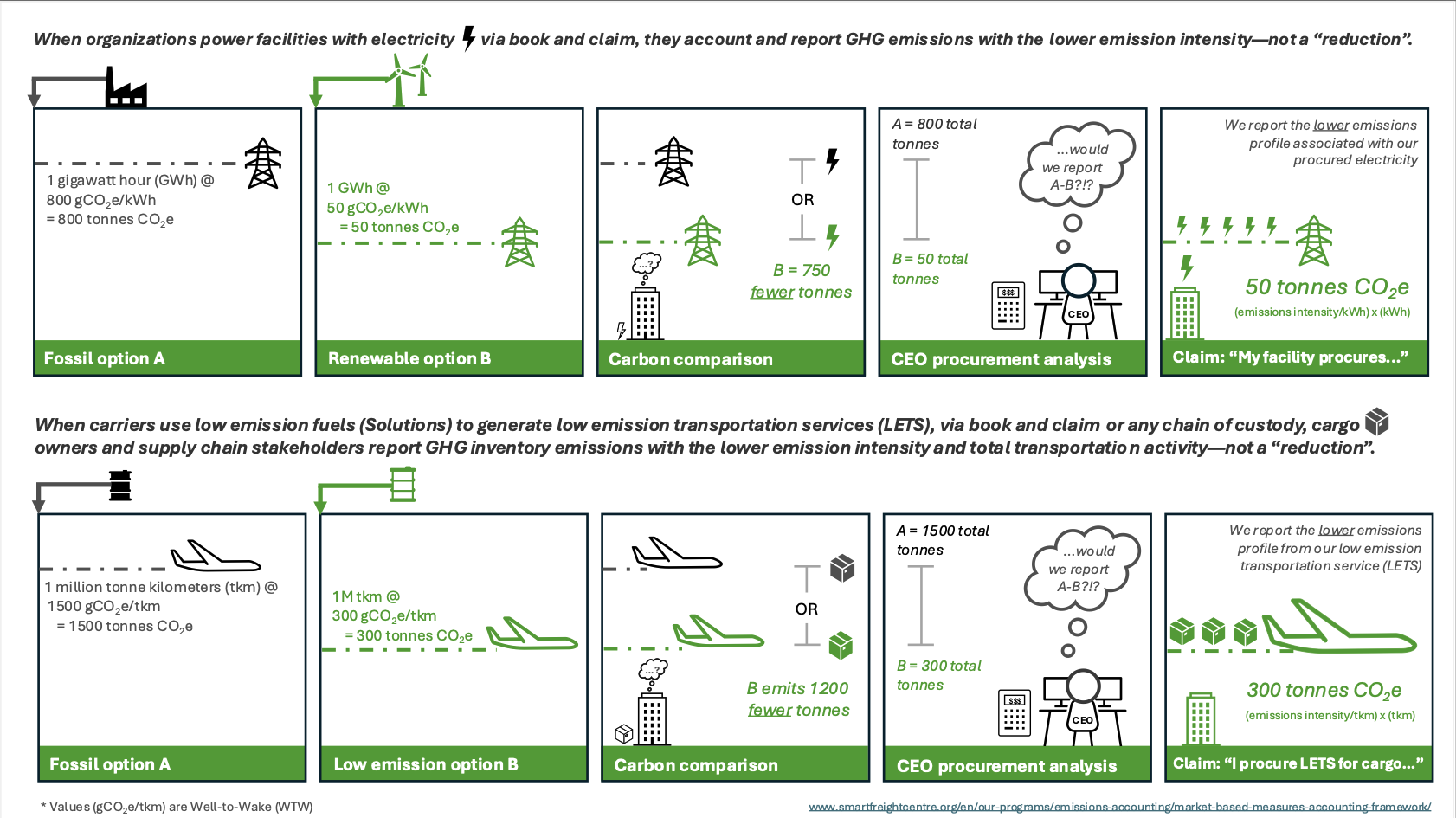
Reductionist Reductions: Beware! Let’s Improve Accounting to Bolster Book and Claim Acceptance

Book and Claim is gaining traction as a market-based mechanism to decarbonize supply chains. To be effective, it must be underpinned by trustworthy and meaningful emissions accounting.
In the article “Reductionist Reductions: Beware! Let’s Improve Accounting to Bolster Book and Claim Acceptance,” Smart freight Centre’s Methods Standards and Assurance team highlights the risks of oversimplified or reductionist “reductions” approaches to market based accounting and calls for smarter, more nuanced methods.
Key topics discussed in the article include:
-
Transparent transportation accounting—following conventions like ISO 14083 and the GLEC Framework—is essential to increase stakeholder confidence and support wider adoption of chain of custody mechanisms like book and claim.
-
The growing need to clearly distinguish between project- or intervention-based accounting approach such as carbon offsets and a normative, attributional inventory approach such as the application of book and claim.
-
Oversimplifying climate benefits achieved through the application of chain of custody mechanisms into single figures or “reduction” claims when applying market based measures to one’s inventory can be misleading and misaligned with accepted reporting practice.
-
Real-world decarbonization efforts can be misconstrued when accounting systems fail to reflect the actual flows of energy and the resulting carbon footprint in supply chains.
Courses related to this subject:
To understand more about Book and Claim, enroll in the courses below.
Who we are
The Smart Freight Centre Academy is the education and knowledge-hub of globally recognised NGO Smart Freight Centre, a leader in freight decarbonization practices, standards and frameworks.
Copyright © 2026